Related Research Articles
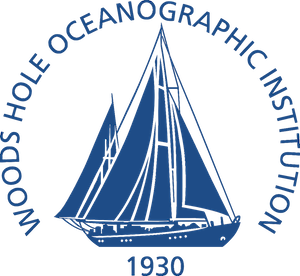
The Woods Hole Oceanographic Institution is a private, nonprofit research and higher education facility dedicated to the study of marine science and engineering.
Ian Nicholas McCave is a British geologist, who was the Woodwardian Professor of Geology at the University of Cambridge Department of Earth Sciences from 1985 to 2008 and a fellow of St John's College from 1986 to present. His current research topic is "The Sediment Record of the Deep-Sea Circulation" in the area of "Environmental change and marine geochemistry". He is primarily a marine sedimentologist.
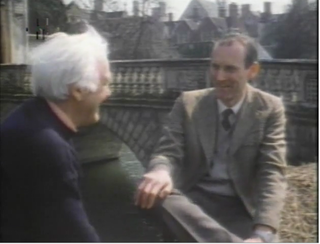
Frederick John Vine FRS is an English marine geologist and geophysicist. He made key contributions to the theory of plate tectonics, helping to show that the seafloor spreads from mid-ocean ridges with a symmetrical pattern of magnetic reversals in the basalt rocks on either side.
Sir Nicholas John Shackleton was an English geologist and paleoclimatologist who specialised in the Quaternary Period. He was the son of the distinguished field geologist Robert Millner Shackleton and great-nephew of the explorer Ernest Shackleton.
Herbert Eric Huppert is a British geophysicist. He has been Professor of Theoretical Geophysics and Foundation Director, Institute of Theoretical Geophysics, at the University of Cambridge, since 1989 and Fellow of King's College, Cambridge, since 1970.
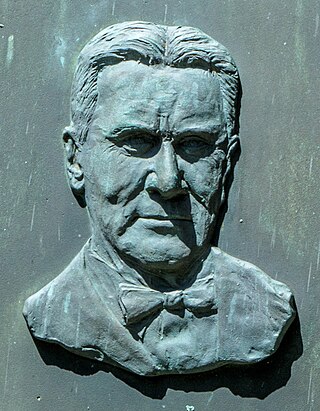
Alfred Clarence Redfield was an American oceanographer known for having discovered the Redfield ratio, which describes the ratio between nutrients in plankton and ocean water. He was a professor of physiology at Harvard University and one of the original staff of the Woods Hole Oceanographic Institution upon its founding in 1930.
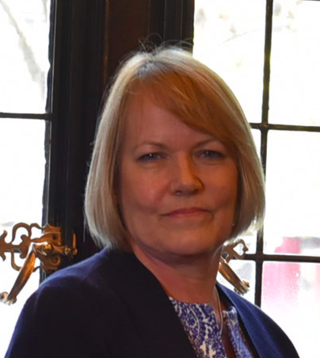
Dame Jane Elizabeth Francis, is the Director of the British Antarctic Survey. She previously worked as Professor of Palaeoclimatology at the University of Leeds where she also was Dean of the Faculty of Environment. In 2002 she was the fourth woman to receive the Polar Medal for outstanding contribution to British polar research. She is currently the Chancellor of the University of Leeds.
Jonathan David Blundy FRS is Royal Society Research Professor at the School of Earth Sciences at the University of Oxford and honorary professor at the University of Bristol.
Professor Henry "Harry" Elderfield, was Professor of Ocean Chemistry and Palaeochemistry at the Godwin Laboratory in the Department of Earth Sciences at the University of Cambridge. He made his name in ocean chemistry and palaeochemistry, using trace metals and isotopes in biogenic carbonate as palaeochemical tracers, and studying the chemistry of modern and ancient oceans - especially those of the glacial epoch and the Cenozoic.

Michael Selwyn Longuet-Higgins FRS was a British mathematician and oceanographer at the Department of Applied Mathematics and Theoretical Physics (DAMTP), Cambridge University, England and Institute for Nonlinear Science, University of California, San Diego, USA. He was the younger brother of H. Christopher Longuet-Higgins.
Sir Robert Stephen John Sparks,, is Chaning Wills Professor of Geology in the Department of Earth Sciences at the University of Bristol. He is one of the world's leading volcanologists and has been widely recognised for his work in this field.
Harry Leonard Bryden, FRS is an American physical oceanographer, professor at University of Southampton, and staff at the National Oceanography Centre, Southampton. He is best known for his work in ocean circulation and in the role of the ocean in the Earth's climate.
Robert B. Gagosian is an American oceanographer. In 2016 he is acting president of the Desert Research Institute in Nevada. Gagosian served as president and CEO of the Consortium for Ocean Leadership in Washington, D.C., from 2007 to 2015, where he is currently president emeritus. Gagosian served as president and director of the Woods Hole Oceanographic Institution (WHOI) from 1994 to 2006, where he is currently president emeritus.
John Graham Shepherd CBE FRS is a British Earth system scientist, Emeritus Professor at University of Southampton, and a former director of the National Oceanography Centre, Southampton. He has worked on a wide range of environment-related topics, including the transport of chemical tracers in the atmospheric boundary layer and in the deep ocean, the management of marine fish stocks, and the dynamics of the Earth system. More recently he led a comprehensive review of geoengineering for the Royal Society.
John Hyslop Steele was a British oceanographer who made major contributions to the study of marine ecosystems.
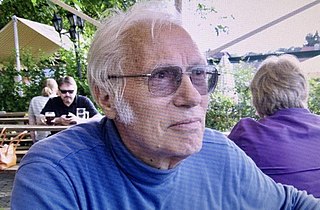
Wolfgang "Wolf" Helmut Berger was a German-American oceanographer, geologist, micropaleontologist and emeritus professor at the Scripps Institution of Oceanography, University of California, San Diego. His research interests comprise "micropaleontology, marine sedimentation, ocean productivity, carbon cycle, ocean history, climate history, and history of oceanography."

Anthony Brian Watts FRS is a British marine geologist and geophysicist and Professor of Marine Geology and Geophysics in the Department of Earth Sciences, at the University of Oxford.
Columbus O'Donnell Iselin (1904–1971) was an American oceanographer. He was the director of the Woods Hole Oceanographic Institution from 1940 to 1950, and from 1956 to 1960. He was Professor of Physical Oceanography at Harvard University and the Massachusetts Institute of Technology (MIT).

Trevor John McDougallFAGU is a physical oceanographer specialising in ocean mixing and the thermodynamics of seawater. He is Emeritus Scientia Professor of Ocean Physics in the School of Mathematics and Statistics at the University of New South Wales, Sydney, Australia, and is Past President of the International Association for the Physical Sciences of the Oceans (IAPSO) of the International Union of Geodesy and Geophysics.
Richard W. Murray, a geologist and oceanographer, is the Deputy Director and Vice President for Research at Woods Hole Oceanographic Institution (WHOI) in Woods Hole, Massachusetts. Murray was previously a professor of earth and environment at Boston University (1992-2019), where he served as Chair of the Department of Earth Sciences (2000-2005), and Director of Boston University's Marine Program (2006-2009).
References
- ↑ "2014 Awards: Citations and Replies". Geological Society of London . Retrieved 8 March 2016.
- 1 2 3 4 "University of Leeds | for media | the Reporter". Archived from the original on 2016-03-04. Retrieved 2011-11-27.
- ↑ "Woods Hole Oceanographic Institution".
- ↑ "The Geological Society of London".